第24章 THE AGE OF THE DICTATORS(5)
It was in every respect a daring step, but Lopez knew that Argentina was not so well prepared as his own state for a war of endurance. Uruguay then entered into an alliance in 1865 with its two big "protectors." In accordance with its terms, the allies agreed not to conclude peace until Lopez had been overthrown, heavy indemnities had been exacted of Paraguay, its fortifications demolished, its army disbanded, and the country forced to accept any boundaries that the victors might see fit to impose.
Into the details of the campaigns in the frightful conflict that ensued it is not necessary to enter. Although, in 1866, the allies had assembled an army of some fifty thousand men, Lopez continued taking the offensive until, as the number and determination of his adversaries increased, he was compelled to retreat into his own country. Here he and his Indian legions levied terrific toll upon the lives of their enemies who pressed onward, up or down the rivers and through tropical swamps and forests. Inch by inch he contested their entry upon Paraguayan soil. When the able-bodied men gave out, old men, boys, women, and girls fought on with stubborn fury, and died before they would surrender. The wounded escaped if they could, or, cursing their captors, tore off their bandages and bled to death. Disease wrought awful havoc in all the armies engaged; yet the struggle continued until flesh and blood could endure no more. Flying before his pursuers into the wilds of the north and frantically dragging along with him masses of fugitive men, women, and children, whom he remorselessly shot, or starved to death, or left to perish of exhaustion, Lopez turned finally at bay, and, on March 1, 1870, was felled by the lance of a cavalryman. He had sworn to die for his country and he did, though his country might perish with him.
No land in modern times has ever reached a point so near annihilation as Paraguay. Added to the utter ruin of its industries and the devastation of its fields, dwellings, and towns, hundreds of thousands of men, women, and children had perished. Indeed, the horrors that had befallen it might well have led the allies to ask themselves whether it was worth while to destroy a country in order to change its rulers. Five years before Lopez came into power the population of Paraguay had been reckoned at something between 800,000 and 1,400,000--so unreliable were census returns in those days. In 1878 it was estimated at about 230,000, of whom women over fifteen years of age outnumbered the men nearly four to one. Loose polygamy was the inevitable consequence, and women became the breadwinners.
Even today in this country the excess of females over males is very great. All in all, it is not strange that Paraguay should be called the "Niobe among nations."Unlike many nations of Spanish America in which a more or less anticlerical regime was in the ascendant, Ecuador fell under a sort of theocracy. Here appeared one of the strangest characters in a story already full of extraordinary personages--Gabriel Garcia Moreno, who became President of that republic in 1861. In some respects the counterpart of Francia of Paraguay, in others both a medieval mystic and an enlightened ruler of modern type, he was a man of remarkable intellect, constructive ability, earnest patriotism, and disinterested zeal for orderliness and progress. On his presidential sash were inscribed the words: "My Power in the Constitution"; but is real power lay in himself and in the system which he implanted.
Garcia Moreno had a varied career. He had been a student of chemistry and other natural sciences. He had spent his youth in exile in Europe, where he prepared himself for his subsequent career as a journalist and a university professor. Through it all he had been an active participant in public affairs. Grim of countenance, austere in bearing, violent of temper, relentless in severity, he was a devoted believer in the Roman Catholic faith and in this Church as the sole effective basis upon which a state could be founded or social and political regeneration could be assured. In order to render effective his concept of what a nation ought to be, Garcia Moreno introduced and upheld in all rigidity an administration the like of which had been known hardly anywhere since the Middle Ages. He recalled the Jesuits, established schools of the "Brothers of the Christian Doctrine,"and made education a matter wholly under ecclesiastical control.
He forbade heretical worship, called the country the "Republic of the Sacred Heart," and entered into a concordat with the Pope under which the Church in Ecuador became more subject to the will of the supreme pontiff than western Europe had been in the days of Innocent III.